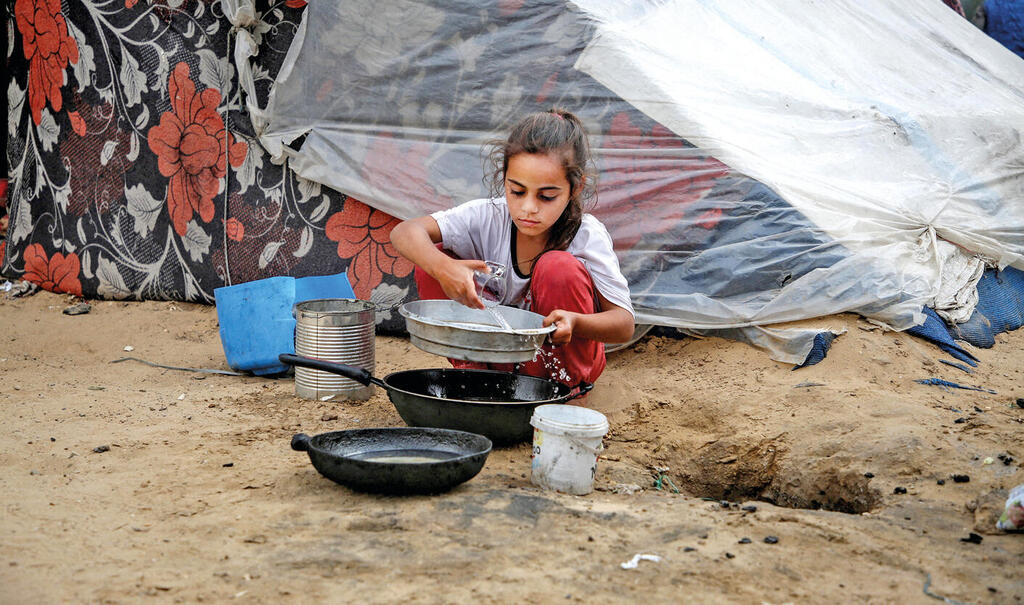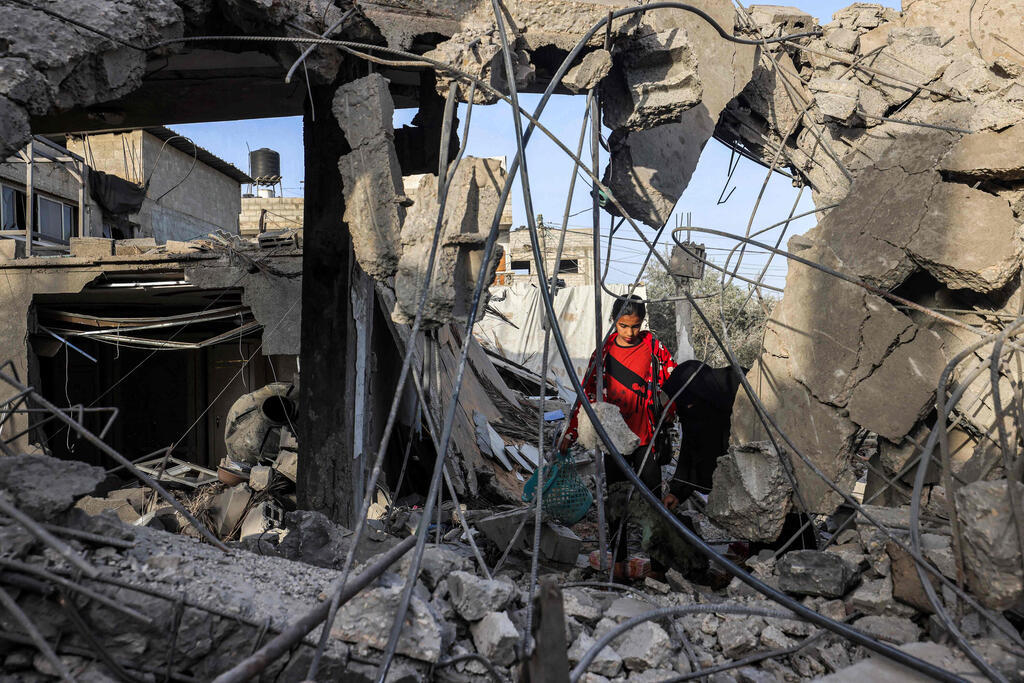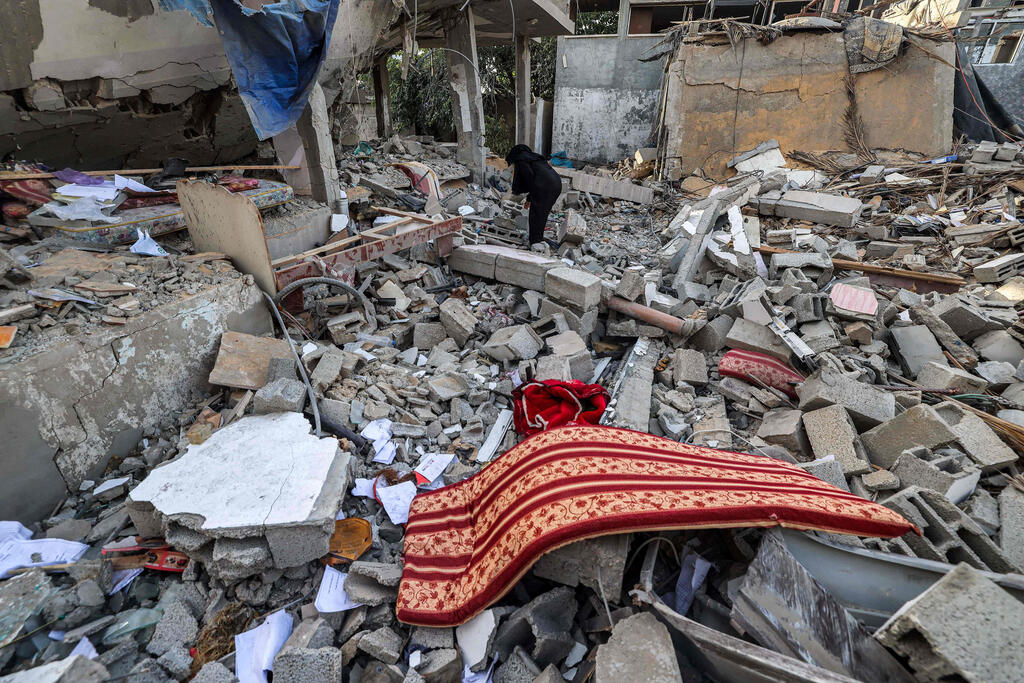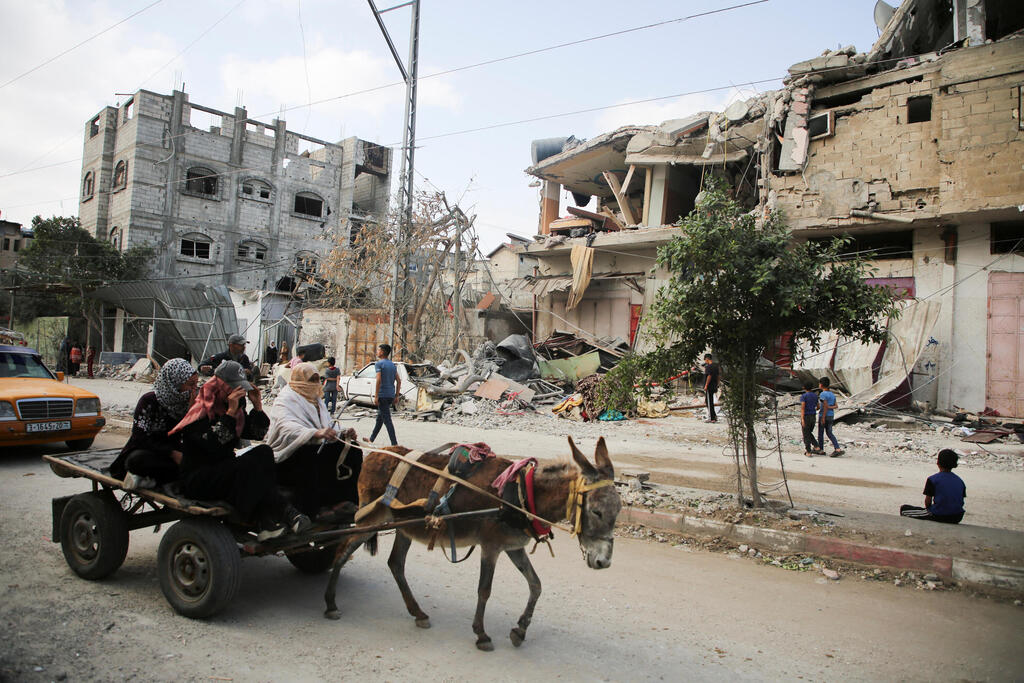Getting your Trinity Audio player ready...
In preparation for the ground offensive in Rafah, it is important to underscore that it would differ significantly from previous actions in the Gaza Strip. This is due to American constraints, as they are unwilling to tolerate civilian casualties and demand humanitarian aid provisions before, during and after any military activity. The Egyptians, for their part, require stringent security coordination.
A single misfired shell that kills civilians inadvertently could halt the operation entirely. Consequently, the task assigned to the 98th and 162nd Divisions will diverge greatly from their usual operations in the enclave, and their use of firepower will be exceedingly cautious.
The Americans have already made it clear that they will not tolerate civilian casualties, posing a nearly impossible challenge in an area with over a million civilians.
Concerns over a mass breakout
Two initiatives are being pursued concurrently: coordination with the Egyptians and the Americans. The Egyptians are particularly worried about a mass exodus of Gazans into Egypt, potentially triggered by Hamas. Should Hamas feel pressured by military actions, it might push civilians toward the Egyptian border as a tactic to pressure Egypt into stopping the Israeli operation.
The Egyptian military is on high alert due to the potential catastrophe of a mass breakout scenario, a lesson learned from the mass breach on October 7. This fear has also prompted Cairo to exert increased pressure on Hamas to strike a deal and attempt to prevent Israeli military action.
U.S. Secretary of State Antony Blinken arrived in Israel on Wednesday and is scheduled to tour the Ashdod Port and the Kerem Shalom crossing to closely examine the transfer of humanitarian aid to the Gaza Strip.
In normal times, it would seem absurd for the top diplomat of the world's most powerful nation, a very busy person, to fly across the globe just to oversee trucks carrying flour into Gaza. However, this underscores the Biden administration's desire for Israel to extend its efforts to facilitate operations in Rafah, if at all.
Alongside the American initiative for normalization with Saudi Arabia and a regional security alliance, Blinken aims to ensure that the IDF does everything possible to avoid harming non-combatants during the entry into Rafah and to sustain the humanitarian efforts in the Gaza, even during operations in its southern part.
For instance, Blinken will be shown precisely where evacuation zones are located, how many hospitals and clinics will treat the injured and what food will be provided to those evacuated from Rafah to humanitarian areas.
It is clear to everyone in the IDF that ground forces will enter Rafah. Completing the war objectives will not be possible without passing through Hamas' last stronghold in Gaza. The operational plan includes various stages with capabilities for stopping and mission adjustment depending on the pressure exerted on Israel.
Minimal legitimacy crises
In order to complete this operation with minimal international legitimacy crises and maximum military achievements, the Israeli military and defense establishment have recently developed an extensive humanitarian-civilian plan.
How is this accomplished? Initially, the humanitarian effort for the Gaza Strip was expanded. Israel increased the number of trucks entering the territory daily (from 350 to 400), flooding the area with aid. It's difficult to argue there's a famine in Gaza when 100 trucks head north each day and markets brim with food.
In addition, field hospitals were set up in the humanitarian zone defined by the IDF in the Mawasi area and near the central Gaza camps, and water pipes to the southern, central and northern Gaza Strip were repaired and opened.
A notable addition is the temporary floating pier by the United States military, currently being established off the Gaza coast. This pier will facilitate the receipt of humanitarian aid by sea, alongside the Ashdod port which has been directed by the Israeli Cabinet to allow the entry of additional assistance through Israel.
The operation in Rafah will be a humanitarian challenge, independent of the international challenge given the lack of legitimacy for continuing the war in Gaza—particularly in a densely populated area housing over a million people.
The military estimates that nearly 200,000 Palestinians out of 1.4 million have left Rafah in recent weeks, mainly to Khan Younis and the central camps, and preparations are intensively underway for the evacuation of the remaining million, even if not all will leave at the military's urging to move north.
The IDF recognizes that the international legitimacy for continuing the war has significantly diminished since October. To address this, there is a need to enhance humanitarian efforts, even if these efforts are not favorably viewed by the Israeli public.
While there are complaints in Israel about every truckload of food entering the enclave, the White House meticulously tracks every sack of rice and flour crossing the border through the checkpoints.
In its current situation, Israel has been fighting on multiple fronts for over half a year, while both military and political solutions to the northern conflict remain elusive. Both the military and the War Cabinet understand that Israel cannot afford to refuse American demands for humanitarian gestures to Gaza in exchange for continued support and assistance from the White House.
If the operation does proceed, even if it is not halted by the Americans and even if the four Hamas battalions in the area are defeated, it will not constitute a total victory. The most critical aspect of Rafah is blocking the smuggling routes, which can only happen with full coordination with Egypt, as the IDF would not remain exposed to attacks if a decision were made to build an underground barrier on the Egyptian side.
The IDF can carry out exposure works, but these are insufficient for the complete destruction of the smuggling tunnels. Smuggling has also been conducted through the crossing itself, making Israeli cooperation with Egypt essential.







